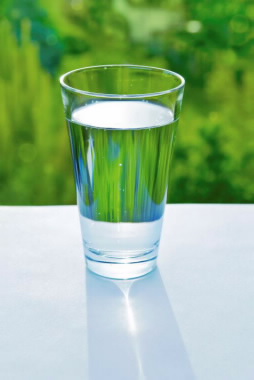FOR IMMEDIATE RELEASE
ACS News Service Weekly PressPac: January 18, 2012
'Miracle tree' substance produces clean drinking water inexpensively and sustainably
A natural substance obtained from seeds of the “miracle tree” could purify and clarify water inexpensively and sustainably in the developing world, where more than 1 billion people lack access to clean drinking water, scientists report. Research on the potential of a sustainable water-treatment process requiring only tree seeds and sand appears in ACS’ journal Langmuir.
Stephanie B. Velegol and colleagues explain that removing the disease-causing microbes and sediment from drinking water requires technology not always available in rural areas of developing countries. For an alternative approach, Velegol looked to Moringa oleifera, also called the “miracle tree,” a plant grown in equatorial regions for food, traditional medicine and biofuel. Past research showed that a protein in Moringa seeds can clean water, but using the approach was too expensive and complicated. So Velegol’s team sought to develop a simpler and less expensive way to utilize the seeds’ power.
To do that, they added an extract of the seed containing the positively charged Moringa protein, which binds to sediment and kills microbes, to negatively charged sand. The resulting “functionalized,” or “f-sand,” proved effective in killing harmful E. coli bacteria and removing sediment from water samples. “The results open the possibility that … f-sand can provide a simple, locally sustainable process for producing storable drinking water,” the researchers say.
The authors acknowledge funding from the National Science Foundation, and the U. S. Environmental Protection Agency.
![]()
Contact
Science Inquiries: Michael Woods, Editor, 202-872-6293
General Inquiries: Michael Bernstein, 202-872-6042


